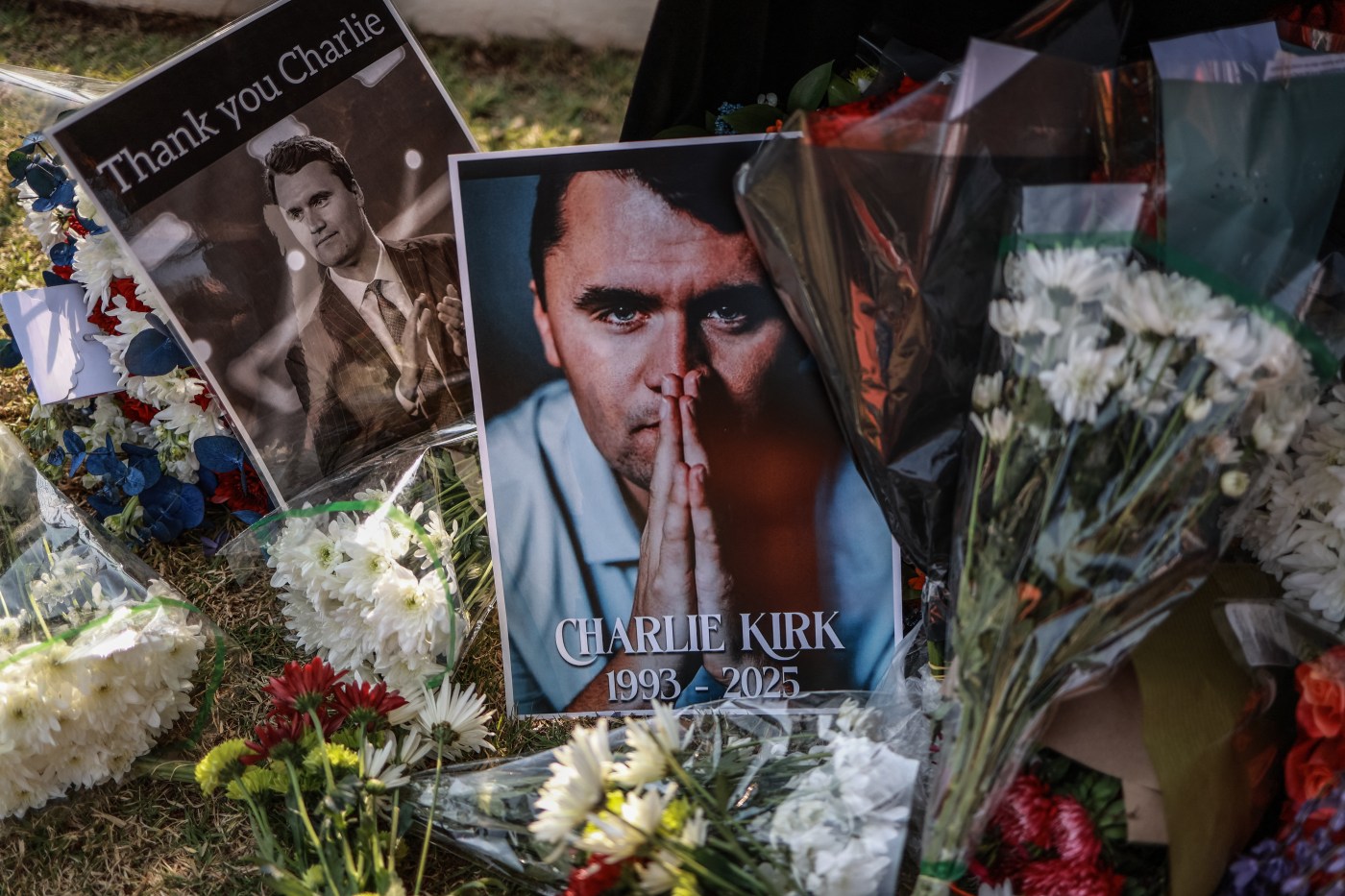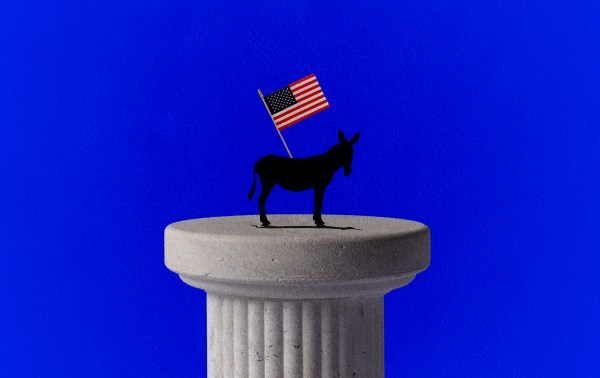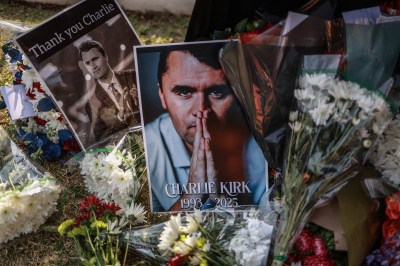Turn any article into a podcast. Upgrade now to start listening.
Premium Members can share articles with friends & family to bypass the paywall.
I didn’t like Charlie Kirk.
Kirk, in my own experience with him, seemed to be a shallow opportunist, which I mention at this time not because it is seemly to speak ill of the dead but to emphasize that a humane principle that extends only to those in one’s good graces is no kind of principle at all. Kirk wasn’t a Nazi—that isn’t what his donors or his audience wanted him to be—but if he had been, his assassination might have been more clarifying, inasmuch as Americans in touch with the best of their national tradition instinctively understand why the ACLU once would work to secure the free-speech rights of those loathsome Nazis targeting Skokie, Illinois, without feeling that they were somehow allowing themselves to be infected by antisemitism and national socialism. Kirk, far from that, was very much of the mainstream of American politics, which made him, to a certain kind of immature mind, all the more intolerable, inasmuch as he represented a kind of politics that could–and then did–come to power.
Presumably, his widow and his grieving children, still too young to understand what is happening to their family, see things differently.
The last time I talked to Kirk, the issue in question was whether he was an actual threat to members of a book club in Florida’s Fisher Island, the most affluent community in these United States by income, where he had received an invitation—and, the times being what they were, an attempted dis-invitation—to speak. In addition to being an attractive place to visit if you are the head of a donor-supported nonprofit, which Kirk was, Fisher Island is one of the safest places in the country, if only because it is an island that can be accessed only by ferry (and you cannot board the ferry without an invitation) or by yacht (provided you have use of a boat slip). Inviting Kirk to speak supposedly made some of the nice, rich progressives on the island feel “threatened,” a reminder, as though one were needed, that one of the endlessly vexing problems with our political culture is that too many Americans are so morally juvenile that they cannot distinguish between a threat and a moment of social discomfort.
People who make you uncomfortable are not a threat.
People who shoot you with a .30-06 are a threat.
Not every murder victim is a martyr to some high principle. Kirk was fundamentally and above all things an entrepreneur, one who knew his audience and who was willing to tell its members whatever they wanted to hear at any given moment if doing so increased his donor base and his influence. He was plastic in his political orientation, going from secularist libertarian critic of the Christian right to evangelical-oriented advocate of big-government corporatism without seeming to raise his pulse. His politics were strictly an us-and-them matter, a question of white hats and black hats.
Beyond that, he was—and this is uncomfortable to write at this moment, though obviously relevant—himself an apologist for political violence, specifically in the matter of the January 6, 2021, insurrection at the Capitol and the attempted coup d’état of which it was one theatrical component. Donald Trump, into whose service Kirk allowed himself to be entirely impressed, body and soul, is an admirer of violence and a celebrant of it. Kirk began his career in public affairs criticizing overweening central government and ended it waving away due-process concerns as black-masked agents of the state dragging people away into unmarked vans. Without quite meaning to, he spent his adult life documenting his own intellectual corruption.
All of that will matter to how Charlie Kirk is remembered.
None of it matters when it comes to the most immediate issue presented by his murder: political violence per se.
It is impossible to maintain, as some do, that political violence is always and everywhere wrong: Our republic was founded in revolution, born in blood at Lexington and Concord and born again in blood at Appomattox Court House. The peace and prosperity of the postwar era was built atop a fundament of bones piled high from Anzio to Guadalcanal. And thus the idiot children of the “antifascist” black blocs, whose anti-Americanism is the most American thing about them, tell themselves: “Our antecedents fought the fascists at Segura de los Baños, or some other place I read about on Wikipedia, and we will fight them ... on the quad.” Because they have suspended elections and shut down the newspapers? “No, but, you see, Charlie Kirk has these irksome YouTube videos ...”
The viciousness and the stupidity of it all is very nearly unbearable. Never mind being citizens of the same country—it is enough to make one embarrassed to be a member of the same species. Say what you will about a young man who made his living filming sophomoric pseudo-debates with hapless randos on college campuses, that isn’t the sort of thing that inspired Col. William Travis to draw his famous line in the sand all those years ago.
It would not do to try to draw some kind of straight-arrow vector from political rhetoric to political violence. But neither would it do to deny that the argument for disinviting Charlie Kirk from a low-stakes speaking engagement in Florida is a very close cousin to the argument for assassinating him: that he and his speech and his ideas are—were—a threat from which the threatened parties must defend themselves. Nice, well-scrubbed people who would never countenance political violence themselves may wave away the implications of their principles, but they rarely, if ever, really question the principle itself.
Presumably, we will learn more about the motives of the killer in coming days and discover whether he is more of a John Wilkes Booth (a relatively calculating political killer, such as Timothy McVeigh or David Eden Lane, a neo-Nazi grotesque who murdered a prominent Jewish radio host over his liberal political views) or a John Hinckley (a disordered mind fixed on a political figure for reasons of celebrity rather than ideology, examples including Jared Lee Loughner). But we already have evidence sufficient to conclude that Kirk was assassinated for having certain views and for advocating them in a way that was effective for an audience he chiseled away not from egghead seminars on Reflections on the Revolution in France but from video games and the Joe Rogan podcast and online sports betting: young men who, having been given almost everything, cannot find it in themselves to be contented, or even grateful.
“Decline is a choice,” Charles Krauthammer famously insisted. And that is not true in matters of international affairs exclusively: Americans must decide, and decide every day, what sort of people it is we are going to be at home. The thought is hardly original to me: “I tremble for my country when I reflect that God is just: that his justice cannot sleep forever: that considering numbers, nature and natural means only, a revolution of the wheel of fortune, an exchange of situation, is among possible events: that it may become probable by supernatural interference!”
To Charlie Kirk’s friends and family, I offer my sincere prayers and sympathy. To his killer and those who make excuses, however obliquely or quietly, for the almost inconceivably imbecilic cruelty at work in his death, only “scorn and defiance; slight regard, contempt.”
But save some of that scorn for Kirk’s so-called friends. My inbox is already full of game attempts to commercialize the assassination in Utah. So many people want a bloody piece of Charlie Kirk to wave around for fundraising and public-relations purposes that, if they are to be all satisfied, there won’t be anything left to bury.
But not everyone sees Charlie Kirk the way I do. To some people, he was a champion and a tribune and a friend. Much more to the point at this time is that to a 1-year-old and a 3-year-old, he was the father who tucked them into bed at night. And for those who understand that there is a world larger than politics, this is what matters most. We fight about politics because we care about the future, and the future of these children has been deformed by this assassination. There is no repairing the damage that has been done to them, and it is not true that time heals all wounds. Kirk’s assassination has raised concerns about the state of the country, but what is the country if not its people–if it is not these children? The relatively few remaining Christians who actually believe their own dogma must confess that there is nothing that is ultimately and finally unforgivable, but forgiveness is not always sweet. It can be very bitter, and very hard to swallow.







Please note that we at The Dispatch hold ourselves, our work, and our commenters to a higher standard than other places on the internet. We welcome comments that foster genuine debate or discussion—including comments critical of us or our work—but responses that include ad hominem attacks on fellow Dispatch members or are intended to stoke fear and anger may be moderated.
With your membership, you only have the ability to comment on The Morning Dispatch articles. Consider upgrading to join the conversation everywhere.